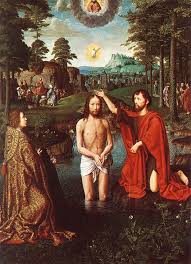I have a question for you: does anyone here know a picky eater? Now when we talk about picky eaters, usually it’s when we complain about the eating habits of our young children or grandchildren, right?
Why do you think kids tend to be picky eaters? Maybe it has something to do with the taste buds, which are still developing as we grow up. When we are young, we experience pleasure when we taste something basic: sweet, salty.
Then maybe we have picky eaters because kids just don’t know any better. As adults we know that less tasty food like broccoli or spinach is good for us, but try tell that to a 2 year old. In addition, there is comfort in eating what has tasted good in the past, there is comfort in doing what we know, right? So why try something new?
Then, of course, you can only be picky if there is something to pick from. Many here have gone through hard times during and after WWII, when food was scarce, and any edible morsel was appreciated. The family of Sigrid R., whose life we will be celebrating after this service, shared with me how, even decades after the end of the war, Sigrid saved very little food scrap and didn’t let anything go to waste. I guess many here can relate to that sentiment, that you don’t waste food, that you better save what we have, because you have experienced hunger and scarcity. You just can’t get that experience out of your system. There is no pickiness when you are starving, when your survival depends on any morsel of food.
Abundance leads to pickiness.
Now is anyone here who would admit to being a picky eater? I do. I may even be pickier today than when I was a kid, because my parents and grandparents gave me no choices. I’d eat what was on the table – and, believe me, my food preferences were usually not considered – and so I had to force down that – to me -repulsive bowl of split pea soup, like it or not. My taste buds may have developed since my childhood, and I may have become more adventurous in trying foods, especially since moving to California, but I am picky. I won’t eat just anything.
At some point, I got taken out to an authentic sushi place for the first time, and the host merrily ordered the most exotic – and expensive – dishes for all. I looked warily at all those jiggly raw pieces of something and was wondering, What in the world is this? What am I eating here?
And we may remain suspicious of strange foods or decide we don’t like certain things, but we ought to be reminded: for some, this is the daily bread. We may not be crazy about it, but this is what God provides as nourishment for the body. And many people around the world today would jump for joy just to have anything decent to eat.
The people of Israel soon have enough of their life in the wilderness. They soon realize that, though they may have lived in slavery while in Egypt, at least they lived in a civilized environment, and there was enough to eat, and so they reminisce about the proverbial fleshpots of Egypt. Freedom comes at the prize of uncertainty and hardships. The new life God gives them of course is strange, unfamiliar, maybe even scary. One of the first needs that becomes obvious is the need for food. The general attitude among the newly liberated is: so, you led us out of Egypt, just to let us die of starvation?
God listens to the complaint and provides a mysterious substance. And, like many who are confronted with unfamiliar food for the first time, the Israelites ask, “What is this?” In the original Hebrew text, we actually have a humorous play on words here, because the Israelites ask, “Man hu?”, ‘What is this?’ Man hu? Manna! And actually, an appropriate translation of the word manna would be something like: it is what it is; this is it, and maybe we could even capitalize the it; This is IT. And scientist up to this day have been trying to figure out what IT might have been. It’s still a mystery food.
Well, the people of Israel seem quite underwhelmed by this miraculous provision of food. This is it? I sometimes wonder what those folks are expecting: the miraculous appearing of fresh baked loaves of pita bread? Lamb chops? It seems they are waiting for something familiar, something they know; but God totally catches them off guard and surprises them by providing what is needed in an unexpected way. It almost seems as if the Israelites are blind to the gift of God, because they are just too narrow-minded to see God at work in their lives.
Makes you wonder how often we neglect to see God at work in our lives, doesn’t it? How often does God provide us with what we need, and we fail to acknowledge God’s gift? How often do we take things we need for granted, like a roof over our head, or enough food to eat, and family and friends? How often do we gripe because we think we don’t get what we deserve?
How often do we think our prayers are unanswered, when God just might be at work in a way we don’t expect it? How often do we reject what God has to offer, because we have choices, there is an overabundance of everything, like activities and spiritual choices. How often have we acted like picky eaters when God provided just what we needed, but it was not what we wanted?
Last Sunday’s gospel from John talked about Jesus miraculously feeding the 5000. Today’s gospel is closely connected to that; the people in the Galilean countryside are still following Jesus; they were fed once, and, as Jesus realizes, they have come for more. They are still hungry. They probably don’t know what they are hungry for; they probably, just like those Israelites in the wilderness, don’t realize that God has set before them exactly what they need: Jesus himself, the bread from heaven, the bread of life, the one who gives salvation and life everlasting.
How often in the gospels do we hear this question about Jesus, “Who is this?” Which is closely related to Man hu, what is this? People see him as a teacher, a healer, someone who is different, someone who has authority, a leader, someone with amazing powers. But Jesus defies all expectations. Jesus cannot be confined to a certain role. Jesus is who he is. He is IT. He is God. It’s right in front of their eyes, and still they don’t get it. Not even the disciples do.
The people should have realized that all the signs they have seen so far point at Jesus himself. Jesus performs miracles, heals all who are afflicted, extends his hand to all who feel lost – but all these signs point at the Christ, the one who comes to restore the relationship between God and humankind, the one who brings and offers God’s kingdom of peace, love, justice and wholeness to all. It is not about the individual acts – it’s about the whole package, Jesus Christ himself. However, the people continue to ask for signs, they continue to wait for miracles and healings, they wait to get their next fill. They go hunting for signs instead of acknowledging that Jesus is the promised bread from heaven. They long for the next tasty morsel, they long to be fed instead of taking it to the next level and sharing Jesus and the fulfillment he brings with others.
And if you ask me, this sounds much like the perpetual spiritual search of many these days – hungry, chasing for the next thing to still their hunger – until the feeling of not being fulfilled sets in again. But it also sounds like those people who consider themselves Christians and always seem to be on the hunt for the perfect church, and who never quite seem to find what they are looking for, for those folks who can’t get no satisfaction.
Two times a month, we are offered the bread of life at this table. It actually surprises me that no one ever asks, “What is this?” As if we could take it for granted that God would offer himself so freely to all of us, that God would bring us fulfillment, nourish and strengthen us, and give what sustains our lives. What is this? Way more than a piece of bread. This is the body of Christ, broken again and again for us so that our hunger for a true and meaningful and eternal life may be stilled. This is the true bread of heaven, the bread of life. This is it! No need to look for anything else. No need to be picky about this. It’s right in front of our eyes, and this is the center of our faith. All that we do as followers and disciples, all that we do as a church, ought to be mere signs that point to this, to IT.
This is the bread of life, broken for you and for all. Our task as disciples is to eat it whenever we can, to let it still our hunger for love and peace and salvation and life – and to truly share this bread with all who hunger for salvation and life – with all who hunger for IT.






